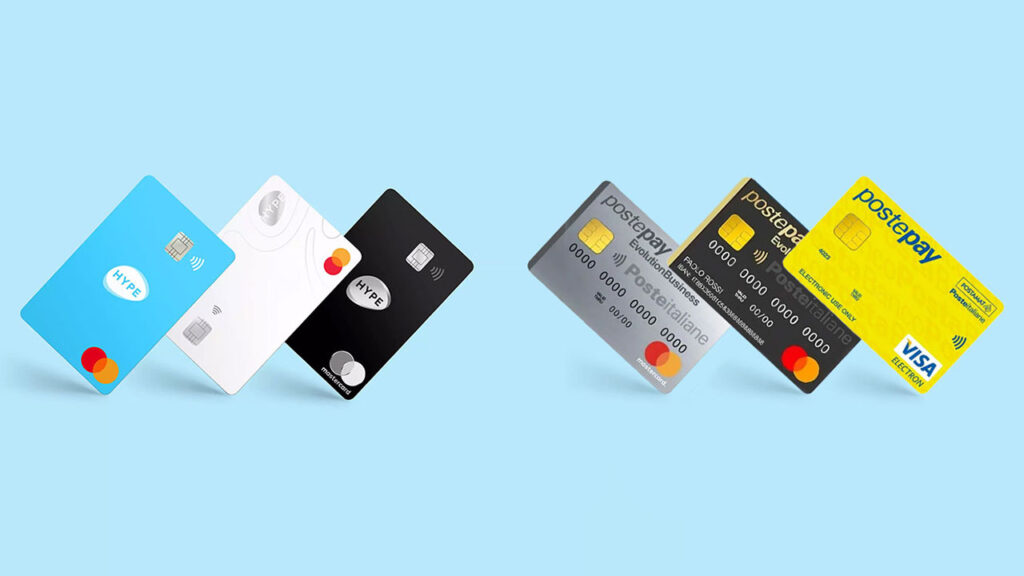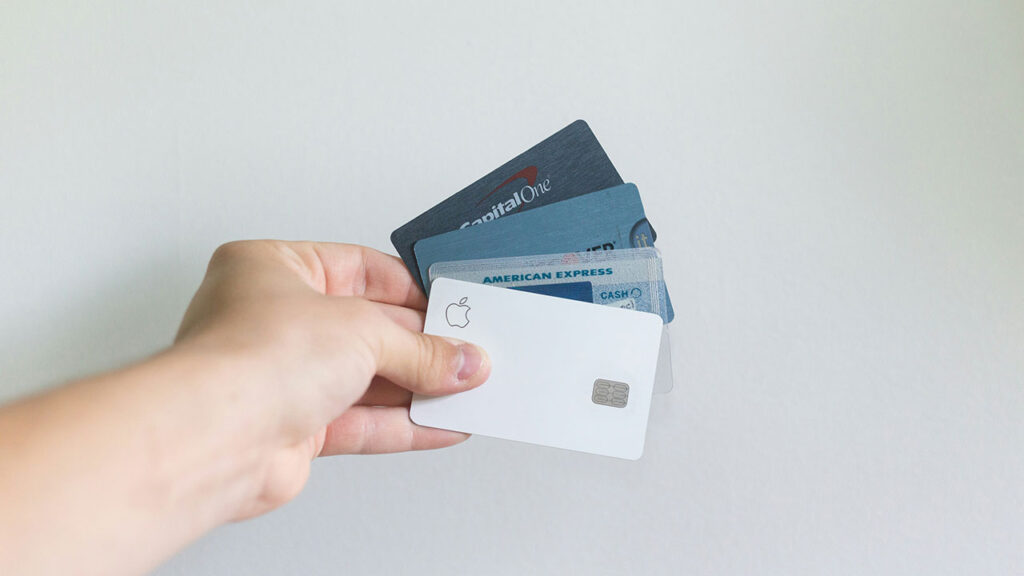In 2024, managing personal finances has never been easier or more complex, thanks to the plethora of financial products available to consumers in Italy. Among the most common tools for managing money are traditional bank checking accounts and prepaid cards. While both serve similar purposes, they cater to different needs and preferences. This article will guide you through the advantages, disadvantages, and key differences between bank checking accounts and prepaid cards, helping you make an informed decision about which option is best suited for your financial needs in Italy.
Understanding Bank Checking Accounts and Prepaid Cards
Before diving into the comparison, it’s essential to understand what bank checking accounts and prepaid cards are, and how they function.
Bank Checking Accounts
A bank checking account, also known as a conto corrente, is a basic financial account offered by banks and other financial institutions. It allows you to deposit money, withdraw cash, and pay bills. Checking accounts often come with additional features like debit cards, online banking, overdraft protection, and the ability to write checks. They are typically linked to other financial services, making them a central hub for managing personal finances.
Prepaid Cards
A prepaid card, in contrast, is not linked to a bank account. Instead, it functions more like a reloadable gift card. You load money onto the card, and you can spend only what you have loaded. Prepaid cards are popular among those who want to control their spending, avoid overdrafts, or may not qualify for a traditional bank account due to poor credit history or other reasons.
Pros and Cons of Bank Checking Accounts in 2024
Advantages
- Comprehensive Financial Management: A checking account offers a wide range of financial services in one place. From paying bills to receiving direct deposits and transferring money, a checking account is a versatile tool for managing all your financial needs.
- Access to Additional Services: Having a checking account often gives you access to other financial products and services, such as savings accounts, loans, credit cards, and investment options. This integration can make it easier to manage your overall financial portfolio.
- Direct Deposits and Automatic Payments: Checking accounts allow you to set up direct deposits for your salary and automate bill payments, ensuring that you never miss a payment deadline.
- Overdraft Protection: Many checking accounts offer overdraft protection, which can prevent you from facing declined transactions or expensive overdraft fees when you spend more than your balance.
- Enhanced Security: Bank checking accounts come with robust security features, including fraud protection, real-time transaction alerts, and FDIC insurance, which protects your deposits up to a certain amount.
Disadvantages
- Fees: Checking accounts often come with various fees, such as monthly maintenance fees, ATM fees, and overdraft fees. While some banks offer fee waivers, others may require you to maintain a minimum balance or meet other conditions to avoid these charges.
- Complexity: Managing a checking account can be more complex compared to a prepaid card, especially when it comes to keeping track of automatic payments, overdrafts, and maintaining the required balance.
- Potential for Overdrafts: Even with overdraft protection, spending more than you have in your account can result in fees, making it easy to accumulate unexpected charges if you’re not careful.
- Credit Checks: Opening a checking account may involve a credit check, which could be a barrier for individuals with poor credit history.
Pros and Cons of Prepaid Cards in 2024
Advantages
- Spending Control: With a prepaid card, you can only spend the money that you have loaded onto the card. This makes it an excellent tool for budgeting and avoiding debt, as you cannot overdraft or spend money you don’t have.
- No Credit Check Required: Prepaid cards are accessible to everyone, regardless of credit history. There’s no need for a credit check to obtain a prepaid card, making them a great option for those with poor or no credit.
- No Risk of Overdraft: Since you can’t spend more than what’s loaded onto the card, there’s no risk of overdraft fees or interest charges. This makes prepaid cards a safe option for those who want to avoid unexpected expenses.
- Simple and Convenient: Prepaid cards are straightforward and easy to use. There’s no need to worry about maintaining a minimum balance or dealing with the complexities of a traditional bank account.
- Security: Prepaid cards offer a level of security similar to that of traditional bank accounts. If the card is lost or stolen, your financial loss is limited to the balance on the card, and many issuers offer fraud protection services.
Disadvantages
- Limited Features: Prepaid cards do not offer the same range of services as checking accounts. You won’t have access to checks, overdraft protection, or the ability to set up direct deposits or automatic bill payments in the same way you would with a checking account.
- Fees: Prepaid cards can come with various fees, including activation fees, reload fees, monthly maintenance fees, and ATM withdrawal fees. These fees can add up, reducing the overall value of the card.
- No Interest or Savings Options: Unlike checking accounts, prepaid cards do not offer interest on your balance or the ability to link to a savings account. This limits your ability to grow your funds over time.
- Acceptance Issues: While prepaid cards are widely accepted for everyday transactions, there may be limitations with certain types of transactions, such as car rentals, hotel bookings, or online subscriptions, where a traditional bank account or credit card is preferred.
Choosing Between a Bank Checking Account and a Prepaid Card in 2024
To make an informed decision, consider the following factors when choosing between a bank checking account and a prepaid card:
1. Your Financial Goals
- Comprehensive Financial Management: If you’re looking for a central hub to manage all your financial needs, a bank checking account is likely the better choice. It offers a wide range of services, from bill payments to direct deposits, and access to other financial products like savings accounts and loans.
- Budgeting and Spending Control: If your primary goal is to control spending and avoid debt, a prepaid card might be more suitable. It helps you stick to a budget by limiting spending to the amount loaded on the card, making it easier to manage your finances without the risk of overdraft fees.
2. Your Financial Habits
- Frequent Transactions: If you regularly pay bills, receive direct deposits, or make numerous transactions, a checking account is more convenient and versatile. It allows for more seamless financial management and greater flexibility in handling various types of transactions.
- Simple and Occasional Use: If you prefer simplicity and only need a basic financial tool for occasional purchases, a prepaid card may be sufficient. It’s straightforward, with no need to worry about overdrafts or complex account management.
3. Your Access to Financial Services
- Established Banking Relationship: If you already have a relationship with a bank and need access to a full range of financial services, a checking account is likely the better option. It integrates with other services like loans and credit cards, making it easier to manage your overall finances.
- Limited Banking Access: If you have limited access to traditional banking services or prefer not to open a full bank account, a prepaid card provides a viable alternative. It offers a basic level of financial functionality without the need for a bank account.
4. Fees and Costs
- Analyze the Costs: Both checking accounts and prepaid cards come with fees, but the types of fees differ. Checking accounts may have monthly maintenance fees, but these can often be waived by meeting certain criteria, such as maintaining a minimum balance. Prepaid cards, on the other hand, often come with fees for reloading, ATM withdrawals, and inactivity. Consider how you’ll use the account or card and choose the option with fees that best match your financial habits.
The Italian Financial Landscape in 2024
In 2024, Italy’s financial landscape continues to evolve, driven by technological advancements and changing consumer preferences. The increasing shift towards digital banking has influenced how checking accounts and prepaid cards are used and the features they offer.
Digital Banking Revolution
In recent years, Italy has seen significant growth in digital banking, with more consumers opting for online and mobile banking services. This trend has influenced both checking accounts and prepaid cards, with banks and financial institutions offering more digital tools to manage accounts, track spending, and make transactions seamlessly.
Financial Inclusion
Prepaid cards have played a crucial role in promoting financial inclusion in Italy, particularly for individuals who may not have access to traditional banking services. These cards offer a way for people to participate in the financial system, even without a bank account.
Security and Regulation
Both checking accounts and prepaid cards in Italy are subject to stringent regulations aimed at protecting consumers. This includes measures to prevent fraud, ensure transparency in fees, and provide secure transactions. As technology advances, so do the security features offered by these financial products, giving consumers greater confidence in using them.
Conclusion: Which Should You Choose?
Both bank checking accounts and prepaid cards offer unique benefits and drawbacks, and the best choice depends on your individual financial needs and habits.
Consider a Bank Checking Account If:
- You need a comprehensive financial tool that integrates with other financial services.
- You want the convenience of direct deposits, automatic bill payments, and overdraft protection.
- You prefer to have all your financial activities centralized in one account.
Consider a Prepaid Card If:
- You want to control your spending and avoid the risk of overdrafts or debt.
- You do not require the full range of services offered by a checking account.
- You prefer a simple, straightforward financial tool with no need for a credit check.
By understanding your financial goals, habits, and the specific features of each option, you can make the best decision for your needs in 2024. Whether you choose a bank checking account or a prepaid card, both can serve as effective tools for managing your finances in Italy’s dynamic financial landscape.


